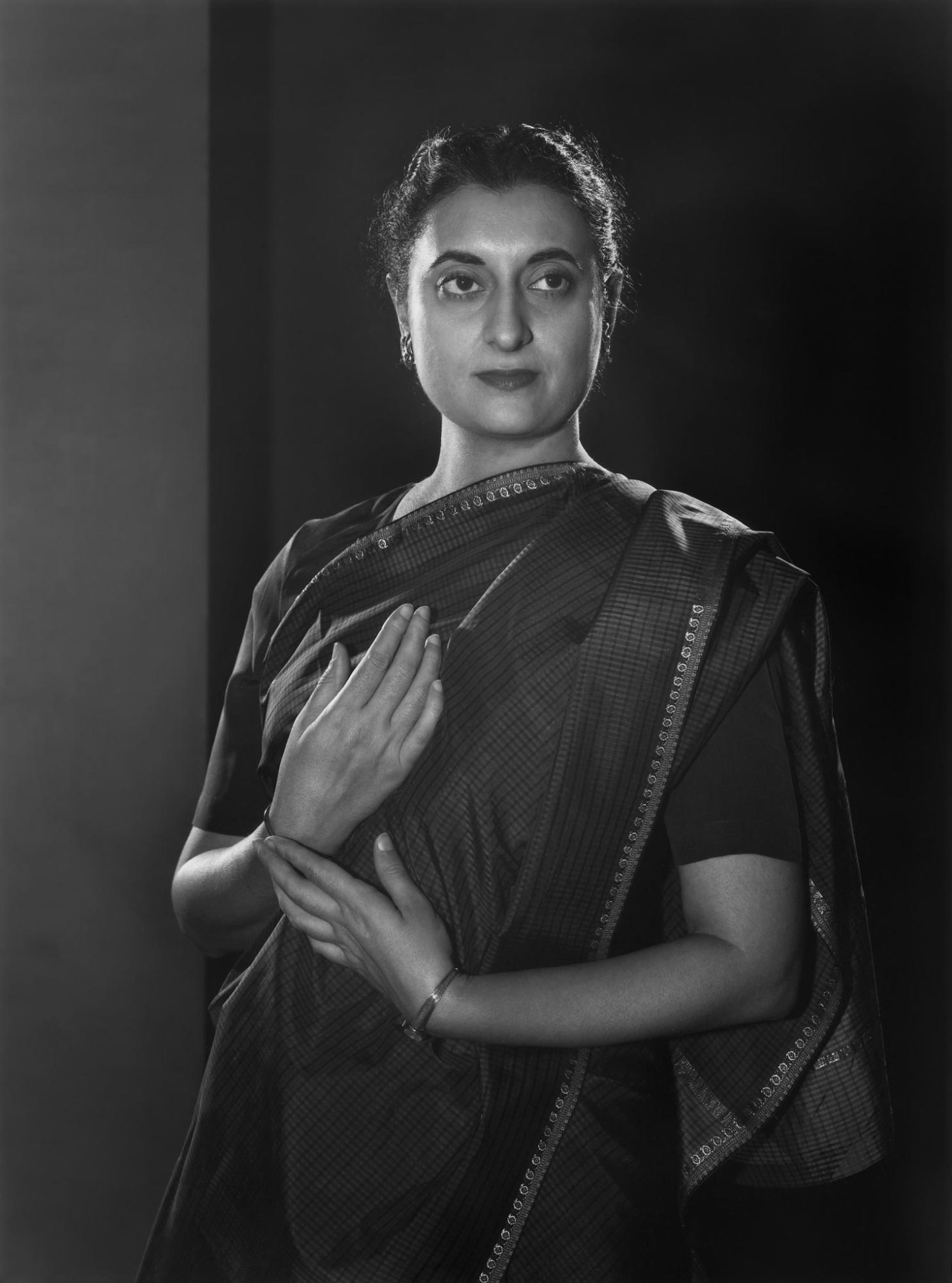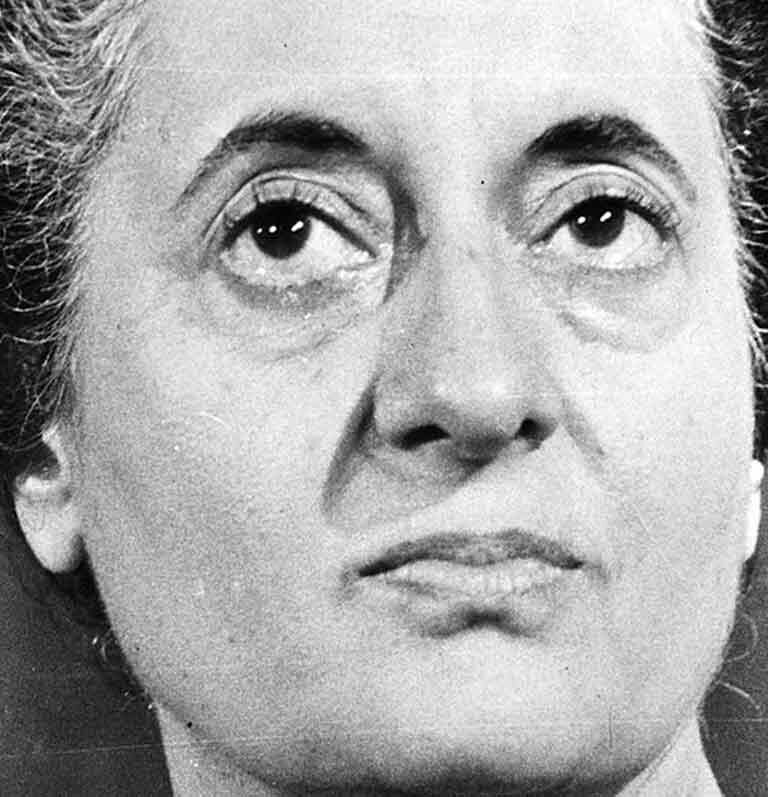The story of Indira Gandhi is a tapestry woven with significant events and a journey through a remarkable life with momentous biography and achievements. She emerged as India’s third Prime Minister, a tenure that stretched from 1966 until the tragic moment of her assassination in 1984. Born on November 19, 1917, in the city of Allahabad, India, Indira Gandhi was destined for a life intricately entwined with the nation’s political landscape. As the daughter of Jawaharlal Nehru, India’s inaugural Prime Minister, her fate was forever tethered to the destiny of the nation.
Early Years of Promise
From her earliest years, Indira displayed the hallmarks of a strong-willed and intellectually gifted individual. Her education spanned India, Switzerland, and England, culminating in studies at Oxford’s Summerville College. Yet, her early life would not be devoid of tribulations. Grow Your Skills and Employability with Certifications.
The Young Patriot
Indira actively engaged in the Indian independence movement, following in the footsteps of her illustrious father. Even during his periods of incarceration, her unwavering commitment to the cause never wavered. The year 1936 brought a personal tragedy as she grieved the loss of her mother. In those trying times, her friendship with Firoz Gandhi blossomed into a relationship that would lead to a controversial yet eventually sanctioned marriage in 1944.
A Crucible of Leadership
The post-independence era in 1947 saw her father, Jawaharlal Nehru, take the helm as India’s inaugural Prime Minister. Indira assumed the mantle of managing the household while skillfully navigating the intricate world of international diplomacy. This early immersion in the realm of political affairs and international relations would form the bedrock of her future leadership.
The Formative Journey
Indira Gandhi’s life story, the foundation of her political legacy, commenced on November 19, 1917, in Allahabad, Uttar Pradesh. Born to Jawaharlal Nehru and Kamala Nehru, she exhibited extraordinary intelligence and dedication from her early years. Exposure to eminent figures like Mahatma Gandhi, Chittaranjan Das, and Madan Mohan Malviya profoundly influenced her nascent worldview. Motivation – Mind – Success – Thinking – Productivity – Happiness.
Early Trials
Her childhood was marred by challenges, notably the arrest of her father and grandfather by the British government in 1921. These trials, though harrowing, galvanized her resolve and shaped her understanding of the world around her.
The Scholar and the Seeker
Indira’s educational journey was a diverse one. Despite initial home tutoring due to familial difficulties, she would go on to attend schools in Delhi, Allahabad, and faraway lands. Her academic pursuits took her to renowned institutions such as the University of Mumbai, Vishwabharati, and Oxford University. Beyond the realm of formal education, her interests encompassed dance, music, and painting, reflecting a holistic approach to her personal growth.
A Legacy Unveiled
Following her assassination, Indira Gandhi’s mantle was passed to her son, Rajiv Gandhi, who assumed the role of Prime Minister of India. His tenure was, however, marred by the tragic anti-Sikh riots that erupted in the aftermath of his mother’s death. Her mortal remains were cremated according to Hindu tradition three days after her assassination, marking the close of an epoch in Indian politics. To this day, her legacy remains a subject of fervent debate and discussion in the annals of Indian history. Women’s health, pregnancy, supplements, breastfeeding.
Stepping into Politics
Indira Gandhi’s entry into India’s political arena was a transformative ascent marked by tumultuous change. In 1955, she joined the Working Committee of the Congress Party and swiftly showcased her political acumen. In a mere four years, she ascended to the presidency of the party. Yet, fate would intervene with the passing of her father, Jawaharlal Nehru, in 1964. Subsequently, she was nominated to the Rajya Sabha, the upper echelons of the Indian Parliament, and assumed the role of Minister of Information and Broadcasting.
A Baptism by Fire
At the tender age of 21, in 1938, Indira Gandhi officially joined the ranks of the Indian National Congress, immersing herself wholeheartedly in the nation’s struggle for independence. Undaunted by government bans on public gatherings, she faced imprisonment alongside her husband, Feroze Gandhi, for nearly nine months.
Guiding Hand to the Nation
During her father’s tenure as India’s inaugural Prime Minister, Indira played an instrumental role as his closest confidante. Her involvement spanned domestic and international spheres, including foreign diplomatic visits. These experiences enriched her knowledge and honed her diplomatic skills. Self Development, Productivity, Time Management, Happiness.
The Ascent to the Pinnacle
In 1959, she was elected as the leader of the Congress Party, a pivotal moment that would define her future. Notably, she also served as the executive assistant in the Indian delegation to UNESCO at the United Nations.
Seizing the Helm
Upon the passing of Lal Bahadur Shastri, a pivotal juncture beckoned for Indira Gandhi. In 1966, she ascended to the position of Prime Minister, shattering gender barriers and becoming the first woman to hold this revered office in India. Her political vision rested on the foundations of socialist democracy, and she embarked on an ambitious quest to forge a self-reliant India, vowing to eradicate poverty—a mission encapsulated in the resounding slogan, “Garibi Hatao.”
Guiding Light in Multiple Arenas
Gandhi’s leadership extended to various sectors, including education, technical education, sports, and culture. She emphasized diplomacy, nurturing international relationships, and played an instrumental role in resolving the longstanding tensions between India and Pakistan, culminating in the historic Shimla Agreement of 1972. Learn English Guide, Speaking, Reading, Writing, Listening Skills.
Controversies and Challenges
Nonetheless, her tenure was not without its share of controversies. Faced with domestic unrest, she declared a state of emergency in a bid to restore law and order across the nation.
A Meteoric Rise
In 1966, the unexpected demise of her father’s successor, Lal Bahadur Shastri, thrust her into the position of Prime Minister. Her leadership style surprised many of her father’s associates, as she displayed a determined and assertive approach to governance. In a bold move in 1969, she unilaterally nationalized the country’s banks, a decision that drew opposition from senior Congress leaders who sought her removal from power. However, she countered their efforts by rallying a new political faction and securing her position through a parliamentary decision in 1971.

War and Progress
The year 1971 witnessed a momentous event in the form of the Indo-Pakistani War, during which India became embroiled in a conflict between East and West Pakistan. Approximately ten million Pakistani refugees sought asylum within India’s borders. Following the surrender of Pakistani forces in December, Gandhi initiated a summit with Pakistani President Zulfiqar Ali Bhutto in Shimla. The two leaders signed the Simla Agreement, heralding the path to peaceful resolution of regional disputes and the recognition of the independent nation of Bangladesh. Travel essentials, accessories, kit & items on Amazon.
Domestic Success and Nuclear Ambitions
During this period, India achieved substantial domestic success through the Green Revolution. In response to chronic food shortages, particularly among impoverished Sikh farmers in the Punjab region, Gandhi introduced high-yielding seeds and irrigation practices, leading to a surplus of crops. Under her leadership, India ventured into the nuclear age in 1974 with the successful detonation of an underground nuclear device.
Authoritarian Tendencies and Confinement
Yet, for all her accomplishments, Gandhi faced criticism for her perceived authoritarian inclinations and allegations of government corruption. In 1977, the Allahabad High Court found her guilty of electoral malpractice, necessitating fresh elections and charges of misusing governmental resources for partisan gain. Instead of resigning, she declared a state of emergency, leading to the incarceration of thousands of political adversaries.
A Complex Political Landscape
Nonetheless, her hold on power was not unassailable, and in the 1977 elections, she faced a significant electoral setback. Despite a brief imprisonment in 1971 on charges of corruption, she made a resurgence in 1980, securing a parliamentary seat and returning to the office of Prime Minister. Digital Electronic Gadgets all Modern Hot Sale on Amazon.
A Personal Loss and a Successor
Tragedy struck once more in 1980 when her son and chief political advisor, Sanjay Gandhi, perished in a plane crash in New Delhi. In response, Indira Gandhi began grooming her other son, Rajiv, as her political successor, setting the stage for a complex political legacy and a dynamic era in Indian politics.
The Closing Act
The Indira Gandhi death biography reads like a somber chapter in Indian politics. On October 31, 1984, Indira Gandhi’s life was tragically cut short when two of her Sikh bodyguards assassinated her. This act of violence was seen as a reprisal for her decision to authorize a military operation at the Golden Temple. Her assassination sent shockwaves across the nation and ushered in a period of turmoil. Sports Accessories for men, boys, women, and kids on Amazon
In Memoriam
Indira Gandhi served as India’s Prime Minister for over 15 years, tirelessly laboring to craft a socialist India. Her vision and determination left an indelible impact on the nation. Tragically, on October 31, 1984, she was assassinated by two of her Sikh bodyguards, Satwant Singh and Beant Singh, allegedly in retaliation for Operation Blue Star—an event that cast a somber shadow over Indian history.
More Interesting Articles
- 5 Valuable Life Lessons to Remember from Great Persons
- 6 Inspirational Life Lessons to Remember for a Better Life
- 8 Great Life Lessons from Alexander the Great Famous Quotes
- 5 Realistic Inspiration for Living from Successful Leaders
- 7 Realistic Life Lessons from Quotes by Franklin D. Roosevelt
- 5 Motivational Tips for Journey to Life from Great People
- 6 Life Lessons for Inspiration in Tough Times from Great People
- 7 Important Life Lessons from Legends to Remember
- 7 Never Forgettable Life Lessons Learned the Hard Way
- 38 Roy Fox Lichtenstein Pop Artist Interesting Fun Facts
- 22 Henry Hudson American Explorer Interesting Fun Facts
- 36 Henry Ford Entrepreneur Interesting Fun Facts
- 10 Greatest Military Commanders of All Time Interesting Facts
- 40 Interesting Fun Facts about Egyptian Queen Cleopatra
- 30 Surprising Mary Queen of Scots Interesting Fun Facts
- 38 Maya Angelou Activist Writer Interesting Fun Facts
- 26 Adam Smith Father of Economics Interesting Fun Facts
- 29 Philosopher Rene Descartes Interesting Fun Facts
- 10 Fun Interesting Facts about Aristotle Greek Scientist
- 10 Interesting Fun Facts about Archimedes Greek Mathematician
